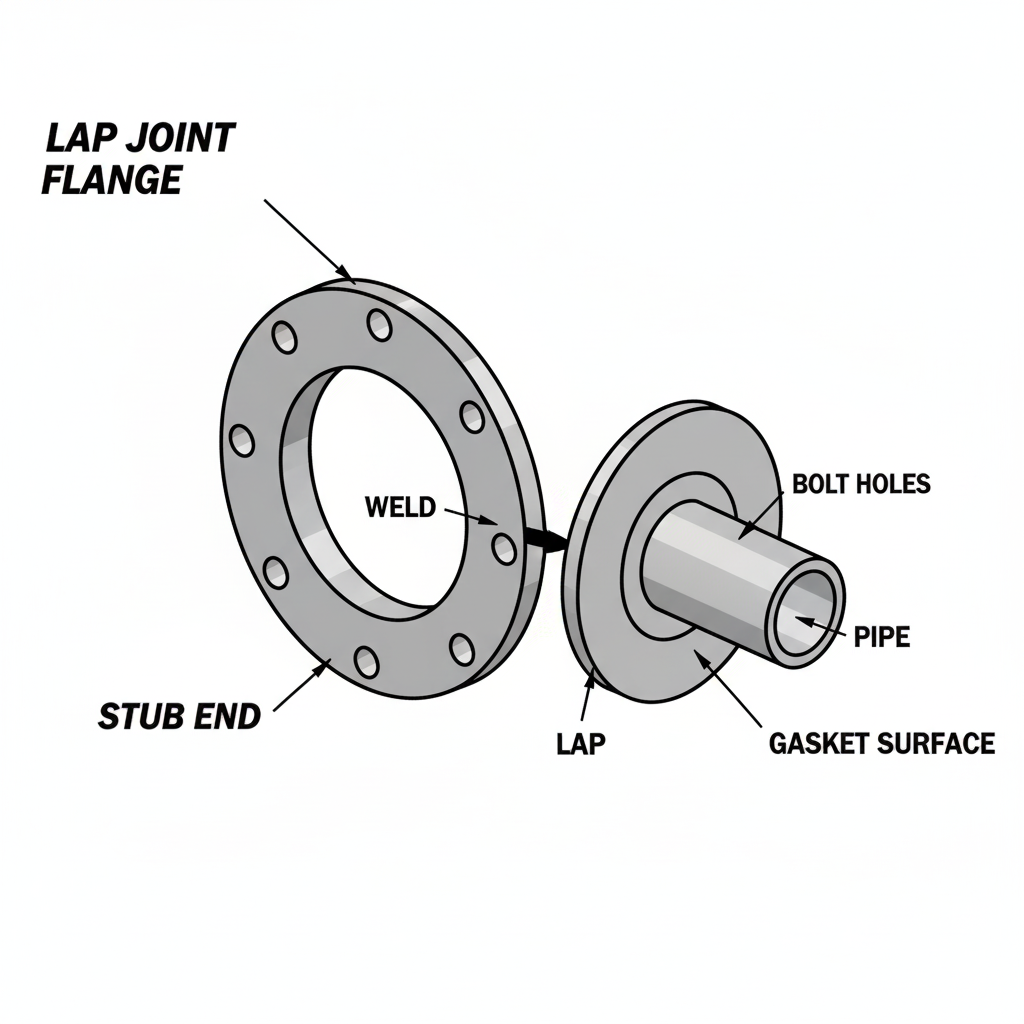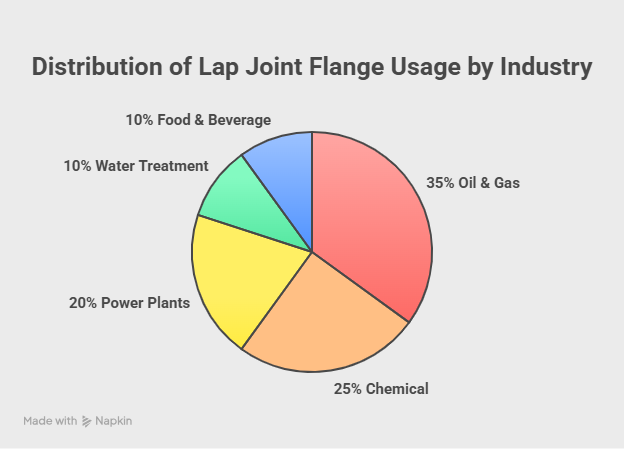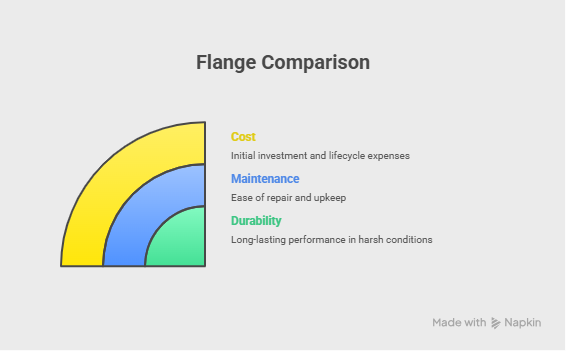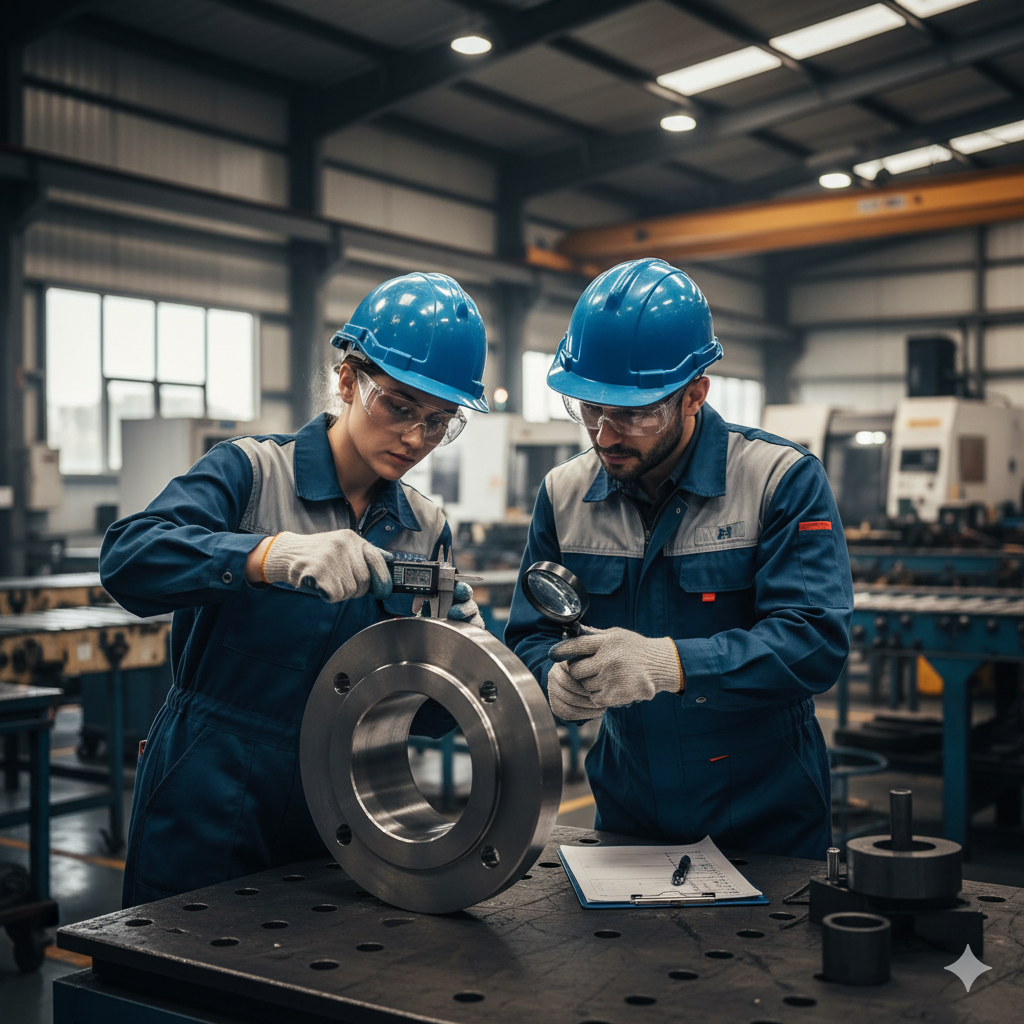Introduction
Carbon steel lap joint flanges are essential components in piping systems. They ensure proper alignment and simplify maintenance. At Fortis Forge, we prioritize quality and precision in manufacturing these flanges.
Lap joint flanges provide a cost-effective solution for systems requiring frequent dismantling. They pair with stub ends, offering flexibility and ease of use.
What is a Carbon Steel Lap Joint Flange?
A carbon steel lap joint flange is a flange used with a stub end to form a bolted connection. Its primary purpose is to simplify assembly and disassembly.
Key Features:
Made from carbon steel for strength and durability
Compatible with various pipe sizes
Rotatable for easy alignment
Ideal for high-pressure and high-temperature systems
Structure and Design
A lap joint flange consists of two main parts: the flange and the stub end. The stub end fits inside the pipe, while the flange slides over it.
Stub End: Provides a smooth bore for fluid flow.
Flange: Rotates around the stub end for alignment before bolting.
This design reduces wear on the flange, extending its life. It also ensures uniform stress distribution during operations.

Why Choose Carbon Steel?
Carbon steel is widely used due to its mechanical properties and affordability. It offers:
High tensile strength
Resistance to deformation
Cost-effectiveness
Excellent weldability
Applications of Carbon Steel Lap Joint Flanges
These flanges are suitable for industries where piping systems require frequent maintenance or inspection:
Oil and Gas Industry – Used in pipelines carrying crude oil or natural gas.
Chemical Industry – Ideal for corrosive fluid transport.
Power Plants – Supports high-temperature steam pipelines.
Water Treatment Facilities – Easy removal and replacement during cleaning.
Food & Beverage Industry – Hygienic design allows quick disassembly.

Installation and Maintenance
Installation Tips
Align the flange over the stub end correctly.
Tighten bolts in a criss-cross pattern for uniform pressure.
Use gasket materials suitable for operating temperatures.
Maintenance Best Practices
Inspect bolts and flange faces periodically.
Replace worn gaskets to prevent leakage.
Monitor for corrosion or wear signs.
Standards and Specifications
Carbon steel lap joint flanges adhere to international standards to ensure quality:
ASME B16.5 – Pipe flanges and flanged fittings
ASTM A105 – Forged carbon steel material
EN 1092-1 – European flange standard
Adhering to these standards ensures safety, reliability, and compatibility.
Advantages of Carbon Steel Lap Joint Flanges
Easy Alignment: Rotatable flange simplifies bolt hole alignment.
Cost-Effective: Only the stub end contacts the fluid, reducing wear.
Low Maintenance: Flange replacement is simple without disturbing the pipe.
Versatility: Can be used with different pipe materials.
Disadvantages
Limited strength compared to welded flanges
Not ideal for very high-pressure systems

Choosing the Right Carbon Steel Lap Joint Flange
When selecting, consider:
Pressure Rating: ANSI/ASME class of flange
Temperature: Operating environment limits
Pipe Size: Ensure compatibility with stub end
Corrosion Resistance: Carbon steel may require protective coating
Fortis Forge Tip: Always consult with engineers to match flange specifications with system requirements.
Fortis Forge Manufacturing Excellence
At Fortis Forge, we combine advanced forging technology with strict quality control. Our carbon steel lap joint flanges are:
Precision-engineered
Heat-treated for durability
Fully tested for pressure and stress resistance
We also offer customization to meet unique project requirements.

Conclusion
Carbon steel lap joint flanges are versatile, cost-effective, and easy to maintain. They are ideal for industries requiring frequent dismantling and inspection.
At Fortis Forge, we ensure every flange meets global standards for quality and safety. Choose our flanges for durability, precision, and reliability.
